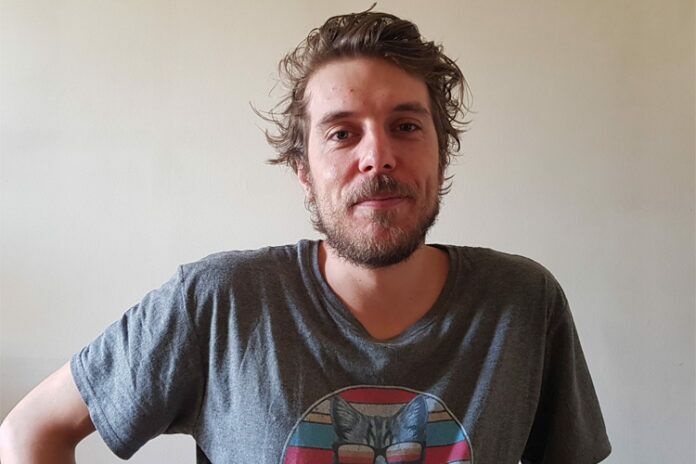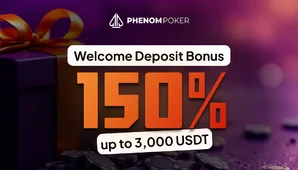(Editor's Note: In honor of Bert “girafganger7” Stevens's recent win in the WSOP Online Main Event, we wanted to share an interview we translated with him that took place last February)
Jonathan Little's discord hosts meetings with famous players and coaches once a month, and listeners can ask them any questions live. The last guest was MTT regular and poker purity fighter Bert “girafganger7” Stevens.
– Today we have a guest who is considered by some to be one of the strongest in online MTTs. How are you, Bert?
– Hello everyone, everything is fine with me. Now I’m taking a break from poker, spending time with animals, and relaxing.
– Do you have a farm? Tell us about this, what kind of animals do you have and how many?
– It's not really a farm. I have five horses, three sheep, a goat, and many chickens. There are 15 more cats.
– Where I come from, they call it a farm, haha.
– I would call it a farm from a children's fairy tale. We do not exploit animals in any way, they simply live for their own pleasure.
– Yes, we saw your photos on Twitter.

– Haha, I’m trying to post more animals. I don't get into fights anymore. For some time I tried to fight for the truth, but I realized that there was no point in it. Although it is not always possible to resist.
– How often do you take a break from poker? Do pauses help you?
– To each his own. I had three years where I was grinding every day. I'm not exaggerating, I didn't have a single day off. That is, for 1,000 days in a row I played tournaments online for at least eight hours. But now I can hardly stand two months of a busy schedule. Poker, especially tournament poker, is very mentally exhausting, and streaks are impossible to get used to. Not even streaks, but segments when you play everything in a line and can’t do anything.
Over time, I realized that at such moments it was better for me to just stop playing. I don’t give myself the following instructions: I’ll play for a month and then rest. I play until I feel it’s time to stop. The problem is that it’s easy to miss this moment; I had this happen several times: “Damn, I should have stopped two weeks ago.” So now I take a break at the first sign and don't worry about missing out on EV at all. I've never missed a Sunday before – and again, I'm not exaggerating; up until a certain point in my career, I never missed a single Sunday session. But now I don’t care about it, I only sit down to play when I feel like I want to.
It also depends on the approach to the game. There are players who focus on GTO, they assemble their game brick by brick, and it’s easier for them to continue grinding, no matter what. But this is more related to the cache. In MTT everything is different. I'm not saying that they don't have GTOs, but at the same time, there are many situations in which the theory doesn't work. In such spots, you need to take into account many parameters and think carefully, but if you grind tired or on tilt, obviously you will start to make mistakes. And some mistakes are almost impossible to compensate for, for example, in two tables or in the final.
– You’ve been grinding non-stop since the very beginning of your career? If I'm not mistaken, have you already played everything at micro-limits?
– Yes, I had an incredible hunger for poker. It's hard to stop when you realize that you can really achieve some success. And MTT is a format in which you have to grind, otherwise, there is no point. Of course, you can always hope that you'll get lucky and score something big, but that doesn't happen to everyone.
And I really succeeded. At the very beginning of my career, I was lucky to meet wonderful coaches – Apestyles, Assassinato, and others. But poker was completely different back then. Not in the sense that it was not resolved, it is still far from it. There was almost no quality content back then. And the one that was available was available to only a few. But today it is enough to invest a little money to get a very worthy product, and it all comes down to just a time investment – you need to work a lot. In those years, you still had to figure everything out on your own, constantly trying to find something new. It's easier for a smart person to do this. And now even this is no longer required, it’s enough to just not be outright stupid.
– Let’s move on to questions in discord. Let me remind you that you can ask about anything, but it is preferable to stick to the poker topic. They ask, did you have any stories in your youth that got you into trouble? Maybe in Vegas?
– Nothing serious. Maybe even before poker. At 17, I finished school and got a job in a bar. Until I was 20, I drank a lot and hung out with dubious companies, but I managed to avoid serious problems. I even spent some time in a real biker gang. I was 19, and there were only men there who were about 40 years old, but they treated me kindly. To them, I was something of a jester.

– You said that before you had to “find something new” in the game. Does this approach still work now? How do you work on a game?
– I constantly repeat that my strategy is not GTO. GTO is often confused with balance. In difficult spots, there are usually several close options. We can even choose the action that is closest to the optimal one, but we will be based on reads and field tendencies, not GTO. The play of the field is very far from both balance and GTO – people still overfold small bets on the flop, hardly use check raises, do not raise leads, get confused with turn sizing, and so on.
First, we master the basic strategy, and then we learn to deviate from it depending on the trends of the field. Once we know how to play a particular spot, we can begin to reason: “If we raise instead of call in this spot, how will my opponent need to adjust to exploit me? And how much money will I win if he doesn’t do this?” This is roughly how I think now. I try to find similar spots. Let's say that in a certain situation, I start raising not 15% of hands, but 20-25%, and my opponents will not be able to adjust correctly. This would mean that I would exploit them, right? So my game is far from GTO, but it is balanced. It used to be that you could win a ton of money by 3-betting preflop and continuation-betting on the flop. Now there are fewer such spots that bring money by default, but they still exist.
Do I keep looking for something new? I have several friends in Russia with whom we work together. They run simulations in software, then offer me their crazy ideas, and I try to put them into practice. For example, recently I began to play raises on the turn more often and increased the sizing on the flop. I used to play according to the strategy of 100% continuation bet on the flop with a small bet. It's a far cry from GTO, but it still works because people still don't understand how to react to it. But now I decided to add increased sizing to my arsenal.
To become a very successful tournament player today, you need to gain excellent basic knowledge of the solver, and then learn to deviate from it a little. The game will remain balanced, your lines will include both bluffs and value bets, but at the same time, you will be able to take your opponents out of their comfort zone. And our task is to put the opponent in such conditions that he does not know what to do. I won't be able to tell you what these spots are. Understanding will come with experience. It helps a lot when you yourself find yourself in the role of a victim. I also found myself in similar situations against the top regs. For example, they make a small raise against me on the turn, and I have no idea how to react. I have to guess, but my opponents know exactly what I should do, and moreover, they understand well what I can do. They just have a lot more experience in the kinds of spots that I encountered for the first time.
By far, GTO remains the most valuable source of poker knowledge. It allows you to understand the general theory of poker – bluffs, value, sizing, board dynamics, ranges, EV, and so on. But in practice, you can apply all this only when you understand the logic of solvers. It is impossible to memorize all the spots, especially in MTT.
– Do you use a HUD?
– At the beginning of my career it was an integral part of my game, but for the last four years, I haven’t looked at statistics at all, even my own.
– I’ve been successfully playing tournaments online for a long time, but one of these days I’ll play my first one live. What should you pay attention to?
– I myself hardly play live, but this is a good question. You should not look for tells from your opponents, because it is much more important not to give away your own. Before my first tournament, I read some books and tried to discern tells from other players, but I quickly realized how stupid it was if I didn’t even really know how to place chips. The simplest thing is to hide your neck so that your opponents don’t see your pulse and watch your breathing.
When it comes to poker, there will be more multiway pots in the live game, so protect your equity first rather than trying to build ranges. For example, if you flop top pair online, you will often not bet. But live the ranges are completely different, so it’s better to just bet and see what happens next – they’ll rearrange our set, and no one will bluff. Also, don’t try to knock your hands out harder; they don’t throw anything away offline. They won't even throw away a pair when you have a clear straight.
It's easy to say, but it's better to try to relax and not worry too much. My first experience live was a huge stress, so I got drunk by the third level. Oh, one more thing – in live your opponents always put you on AK. Therefore, always play AK like aces, and you will be paid by any garbage.
– You said that you deviate from GTO, but at the same time maintain balance. Can you give examples of such actions?
– For example, after raising from early, I will fold from the CO and the button. That is, I play preflop not at all according to the GTO charts. It seems to me that there is no point in playing marginal hands, because in terms of chips, their EV tends to zero, and playing them will only complicate our lives. The only plus is that it will also be more difficult for your opponents to play, but it is better to wait for more profitable spots.
It is difficult to maintain concentration for the entire tournament, so you should always strive to play as simply as possible. Postflop, as I already said, I play with a continuation bet 100% of the time, this is also far from GTO. And the effectiveness of this is manifested not in the fact that opponents overfold, but in the fact that they do not raise often enough. And when they do raise, they then don’t know what to do on the turn. The effectiveness of overfolds shows up in short stacks. Moreover, if the opponent defends at least 2-3% less, then a 100% continuation bet already becomes mandatory. And this works even at high stakes.
– And if they raise you, do you just give up?
– It depends. Against a Russian or a Brazilian, I can allow myself to go a little crazy. But it’s never a mistake to simply throw away your garbage hand when raising.
– Do you believe that all Russians or Brazilians play in the same style?
– Not really. There are funds in which people work together, so they play the same way. I know the Russians quite well because we work together in solvers. They tell me the characteristics of players from different funds. In addition, at high limits, the composition of regulars almost does not change and everyone knows each other.
– Do you think it’s useful for MTT players to play other formats or is it always better to focus on one thing?
– There was a period when I tried to go into cash games because I was tired of the MTT mode. But I didn't like this experience at all. In my opinion, cash games are missing the ultimate goal. You can play 5bb/100 or 7, the only difference is the amount of money you win. But they haven’t interested me in poker for a long time. To progress in the game, other formats are not needed at all. Of course, it is useful to master the game in deep stacks, but in tournaments, 90% of the game is played in 30-40bb stacks. It will be much more effective to thoroughly analyze the game on the button against the BB at a depth of 40 blinds.
– In 10-15 years will it still be possible to make money from poker?
– Poker will definitely be completely different, but it’s impossible to predict exactly how. Five years ago, no one suspected the existence of GGPoker and it was impossible to imagine how online would change due to the pandemic.
I wouldn’t worry about live at all, it will live forever. I don’t believe in the death of poker, but it will be more difficult to win, especially for amateurs. Players who want to take it seriously will always find an opportunity to make money. We have been hearing talk about poker having two years left since the mid-2000s. There is no longer such an influx of newcomers as at the peak, but novice players still appear quite regularly. Poker will always remain as long as the majority of players believe in the fairness of the game.
– What ROI did you have in 2021?
– To be honest, I don’t even know. All my charts can be viewed in the public domain. Lately, I've only been playing GG and before the last big win [Bert won $1.1 million in Super MILLION$ in a $10k buy-in in December] I was on a long downswing. ROI matters at low and mid-stakes, where variance can be combatted by grinding. But this is impossible at high stakes, and what’s the point of calculating the average profit in $500 and $10k tournaments? At lower limits, I was able to maintain an ROI of 50% for 4-5 years.
– How do you feel about smoothing out the variance by selling shares?
– Here, too, everything is too individual. At the beginning of my career, I played with a backer. I didn’t know where to find a good coach and saw an option that offered backing and training together. If, at the same time as backing, you are offered quality training, then this makes sense. But it’s not worth doing it just for the sake of money. It's better to play cheaper on your own. This was very useful for me, because I treat other people’s money very responsibly, and I would most likely squander my own for shots in expensive tournaments.
– I have a question about psychology. How to deal with your own mistakes? I constantly find myself in situations where my intuition tells me the right decision, but I talk myself out of it and make the wrong choice. After this, I always fall into an uncontrollable tilt.
– Great question. When I was grinding mid-stakes, I realized that it doesn't really matter how you play in an individual tournament. In one session you can show the worst poker of your life, but even in it you can learn something useful, the main thing is to understand and remember it. One hand will not change anything at all in the distance. But in poker, everything needs to be looked at through the prism of distance. Keep grinding and try to show your A-game as often as possible.
– If you could choose any person to discuss poker with you once a week, who would you choose?
– Hmm, I would love to make friends with Ike Haxton. Not even so much because of poker, I generally share his views. It would be interesting to chat with Ivey, although if he remains silent all the time, it doesn’t look like such a fun idea. But I heard that he likes noisy parties, this would help us find a common language. There are a lot of strong players in poker from whom I could learn something, but among them, there are obvious assholes with whom I have no interest in crossing paths. Human qualities are more important to me than poker skills.
– How many tables do you play?
– I’m very bad at multi-tabling, I make mistakes all the time. I start the session on 8-10 tables, but I stop opening new ones when I go far. 4-6 is optimal for me.
– Is Addamo the strongest?
– Even five years ago I would have called him that, but now he has become even better. He's hyper-aggressive, but he knows what he's doing. This is an unbeatable mixture. Stephen Chidwick was also distinguished by this when he actively played online.
– How much time do you devote to theory?
– Not much. I've always played more. At the peak of my career, I devoted 2-3 hours to theory a day and 8-12 hours to grind. Now it’s probably four hours a week. But this is also a lot if you know what you want from your classes. I already have excellent fundamental knowledge, so there are no problems with efficiency.
– Are you afraid that bots will destroy online MTTs?
– If the rooms don’t do anything, then the game can die very quickly at high stakes. I don’t know who exactly is cheating, but there are a lot of such people. It seems to me that at mid-stakes, bots are not as common as people think, but at high stakes, on the contrary, their number is underestimated. Bots are by far the biggest danger in poker. There is also ghosting, but a real person still plays there.
If rooms turn a blind eye to this, expensive tournaments with a small number of participants will be the first to suffer. At low limits, there will always be scammers, but due to the total number of participants, the damage from them is not so noticeable. The most amazing thing is that among the scammers there are several players who regularly play high roller tournaments. The worst situation is on partypoker, where they generally play under their real names, although they have been banned from Stars and GG for a long time.





